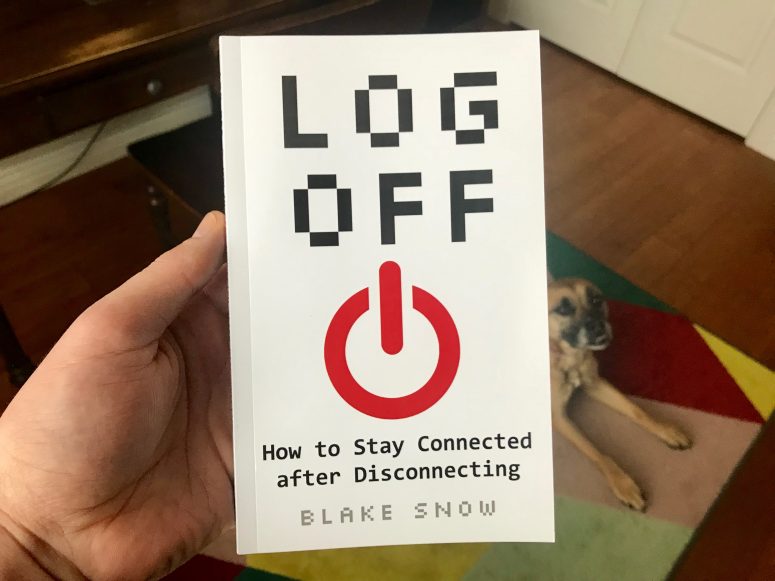5 questions for the author of Log Off: How to Stay Connected after Disconnecting
 Thanks in part to the help of a hired publicist, I’ve enjoyed being interviewed by radio shows, journalists, and book reviewers over the last few weeks. Here’s one in particular (set to publish later this month—will share link later) that I thought blog readers would enjoy:
Thanks in part to the help of a hired publicist, I’ve enjoyed being interviewed by radio shows, journalists, and book reviewers over the last few weeks. Here’s one in particular (set to publish later this month—will share link later) that I thought blog readers would enjoy:
Why is online addiction a growing problem?
While online addictions certainly existed in the desktop and laptop computing days, they didn’t go mainstream until the smartphone era about a decade ago. To compound the issue, the more information and entertainment that gets digitized, the easier it is to get lost in the bottomless search for distractions.
How does too much time online negatively affect our happiness and our relationships?
The last decade of research shows that excessive internetting, smartphoning, and social media make us miserable. There are two reasons for this. First, online abuse stifles our individual and collectively creativity and productivity. Secondly, it keeps us from bonding and connecting with others in more meaningful ways. That is to say that social media is mostly the illusion of relationships. True relationships develop largely offline, though facetime, human touch, body language, and shared presence and experiences. While social media can sometimes facilitate that, it mostly isolates us. In fact, in-person meetings have dwindled in the social media era, as opposed to being boosted by it. This all matters because all of us want to contribute and all of us our social creatures.
What are some successful strategies for limiting time online?
The first if not biggest step is turning off all beeps, buzzes, and visual alerts on our default phone settings (save for voice calls from very important people such as spouses and our boss). That way we can choose to use our phones when we want to rather than having our day interrupted by them every other second. As radical as it sounds, I’ve done this for the last nine years and my professional, personal, and social lives have dramatically improved as a result. True story!
What about work-related time online? How can that be balanced?
Set the expectation with bosses, coworkers, and clients that you’re revising your online use for greater productivity and fulfillment. This starts by ceasing to answer emails on nights, weekends, and vacations. Obviously emergencies happen. In that case, tell those you work to please call you. But remember, in most cases, legitimate emergencies are rare. Either way, 99% of people are understanding because they want the same thing in their own lives. If you happen to have a boss in the 1%, it’s probably time to start looking for a new job.
Are there benefits of online time? If so, how can we keep those benefits without going overboard?
Certainly! I wouldn’t be where I am today without the internet. It truly is a wonderful thing, the greatest human invention since Penicillin. I say as much in both the opening and closing chapters of my book. That said, the internet isn’t going anywhere. The sooner we all realize this, the easier it becomes to take more regular and healthy breaks from it (i.e. on nights, weekends, and vacation) without getting sucked into and distracted from the overwhelming amount of noise taking place online. It’s all about using the internet, our smartphones, and social media with purpose as opposed to the default and unhealthy “all the time.”

